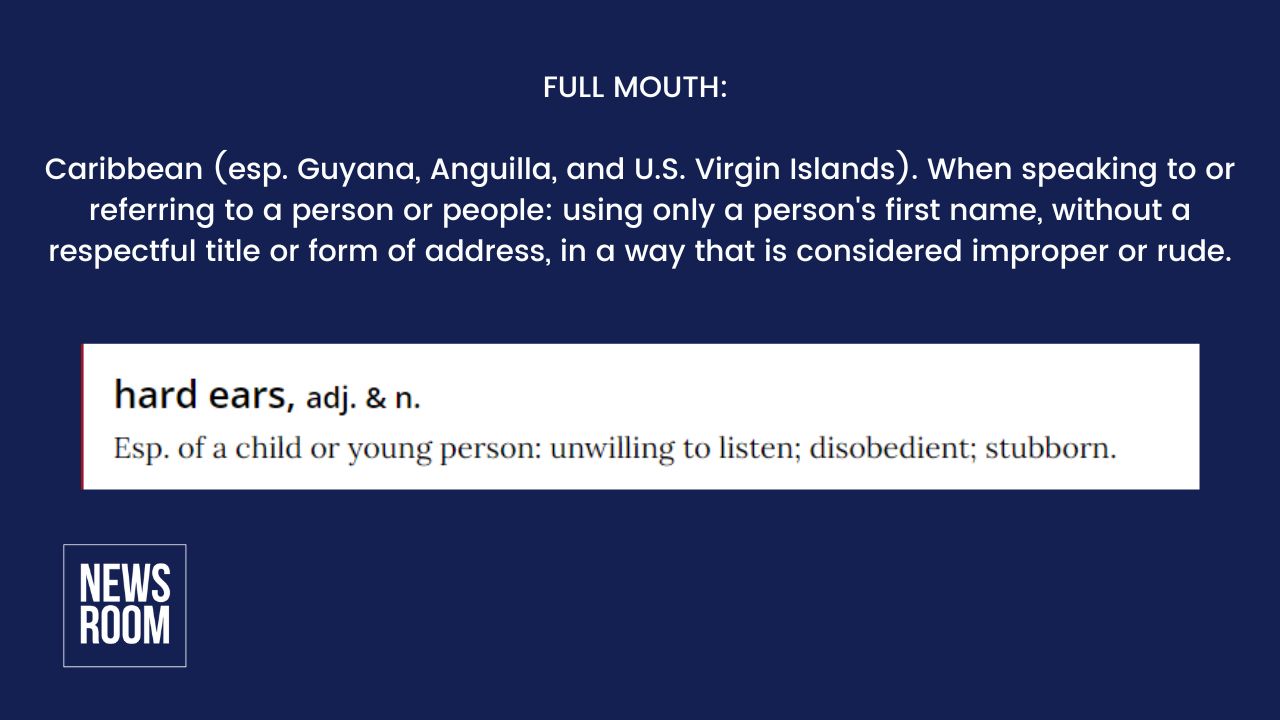Oxford Languages announces its latest Oxford English Dictionary (OED) update.
The oldest Guyanese English words to be added in this batch of new additions to the OED are shared with other varieties of English. In the Caribbean, especially in Guyana, the word belna refers to a rolling pin used to flatten out dough for baking into roti. This word, earliest seen in 1872, was borrowed into Caribbean English from Hindi, and is therefore also used in Indian English, where the form belan is also widely used. The word feg (1875), meaning a segment of an orange or other citrus fruit, or a clove of garlic, was originally used in northeastern England, though today it is now chiefly used in the Caribbean, particularly in Guyana, as well as in Anguilla and the U.S. Virgin Islands.
Among Afro-Guyanese communities, queh-queh (1954) refers to a traditional set of celebrations held before a wedding, involving the betrothed couple with their families and friends, and typically including feasting, drinking, dancing, and bawdy songs. The word probably originates in a West African language, although no etymon for it has yet been traced. Another Guyanese English word of unknown origin is typee (1970), a noun signifying an intense infatuation or lovesickness. When used as a modifier, it can also designate a genre of romantic music. It is said to be from a language of India in certain sources, but just as with queh-queh, no specific etymon has been identified.
A caddy ole punch (1991) is a home-made paper kite, typically constructed from the pages of a schoolbook and stems of a coconut tree leaf, and flown by children as part of Guyana’s kite-flying tradition on or around Easter Monday. Guyanese children also enjoy playing a game resembling tag or hide-and-seek, which they call ketcha (1979), an alteration of catcher. These children are taught not to be hard ears (1868)—unwilling to listen, disobedient, or stubborn—and not to speak or refer to a person full-mouth (1960)—using only his or her first name, without a respectful title or form of address, which in the Caribbean is considered to be improper or rude.
Foreday morning (1916) is early morning, especially before dawn, when a very early breakfast might be enjoyed – perhaps with a butter flap (1978), a soft, slightly sweet, buttery white bread that is folded before baking, commonly known as coco bread elsewhere in the Caribbean, or with a salara (1985), a type of sweet bread made with a white yeast dough, spread with a filling of sweetened and spiced coconut dyed a vibrant red, and rolled up into a cylinder to form a spiral cross-section when sliced.
In Guyana, a towel (2011) is a colloquial term for a banknote; specifically, a Guyanese one-thousand-dollar bill. These towels can be given away as prags (1990)—handouts to people in need. The word can also refer to unofficial or fringe benefits that come with a position of authority, especially unethical or illegal ones. More positively, prags can also be used to mean small gifts customarily given to family and friends when visiting or returning from another country.
[Press Release: Oxford University Press]
The post Hard ears, full-mouth: New words from Guyana added to the Oxford English Dictionary appeared first on News Room Guyana.



